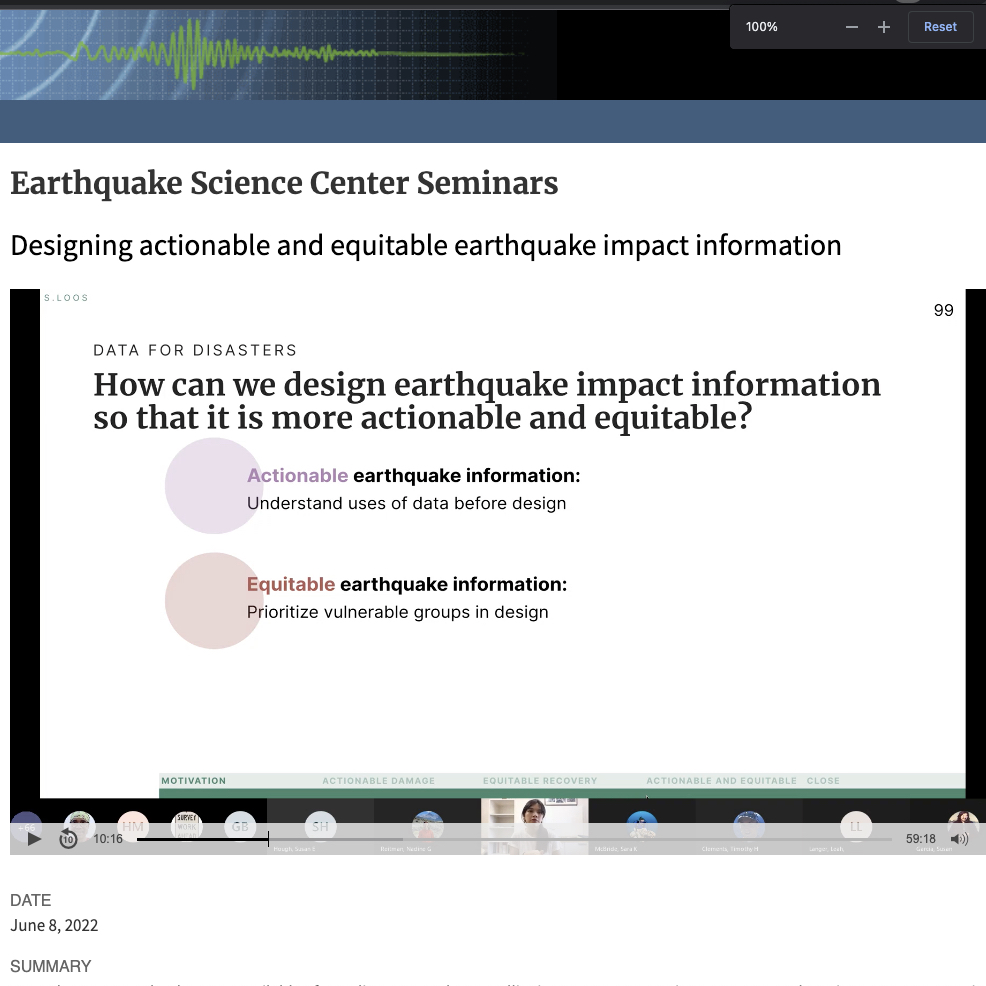Content
Despite research demonstrating the disproportionate effects of disasters on vulnerable groups, current risk modeling approaches lack robust methods to account for such equity concerns. Consequently, efforts to develop evidence-based disaster risk management interventions may lack awareness of differential risks in the settings where they are applied. Here, we draw on the relevant literature to develop a typology for characterizing current approaches to incorporating equity into risk modeling.
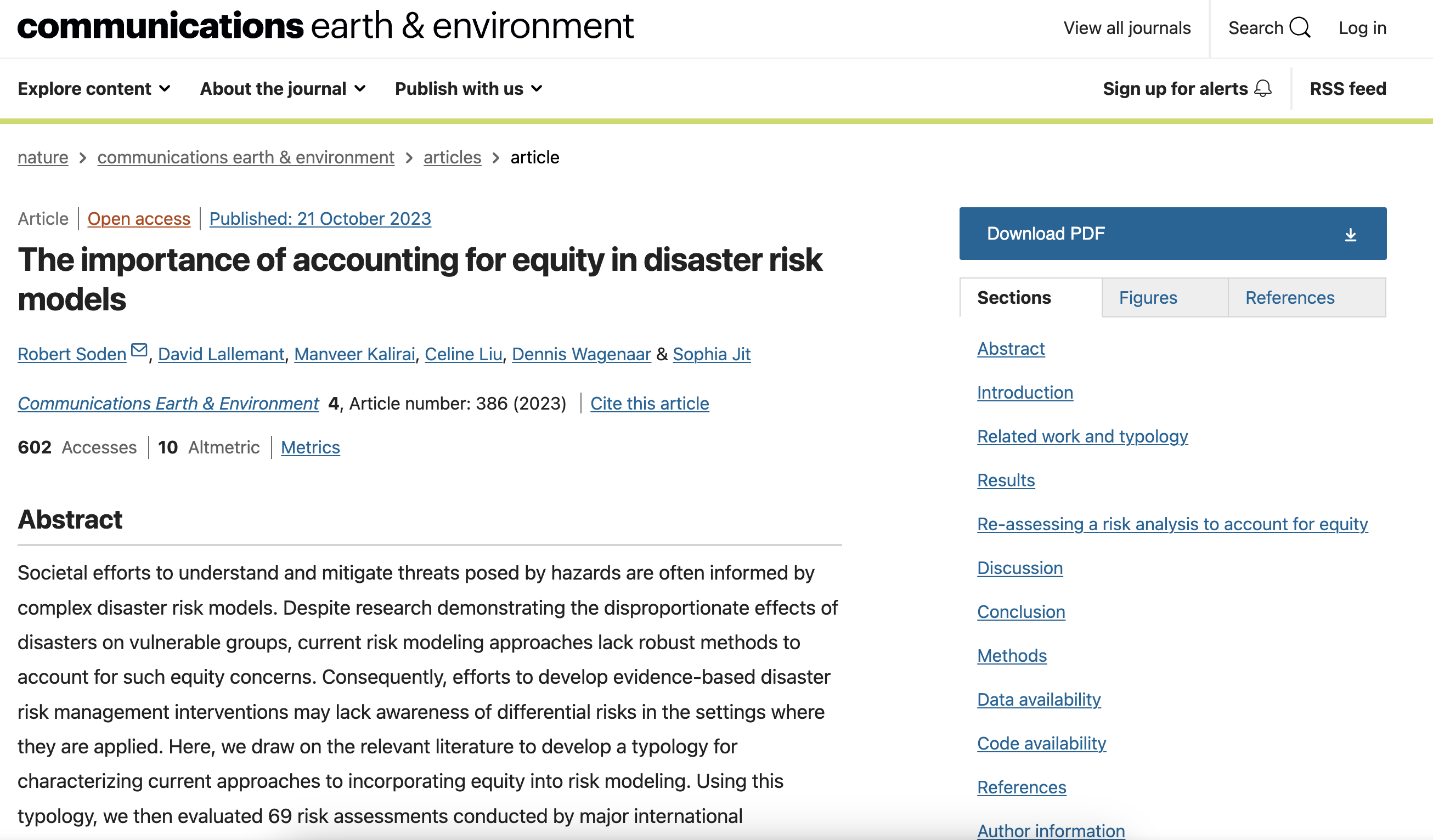
The importance of accounting for equity in disaster risk models
In this paper, we draw on postcolonial, decolonial, and anti-colonial theory and a case study of a multi-hazard disaster and climate risk assessment project conducted in Nepal to examine a potential limit of contemporary environmental data practices – the potential to extend or reinforce colonial knowledge systems and extractive relationship to land.
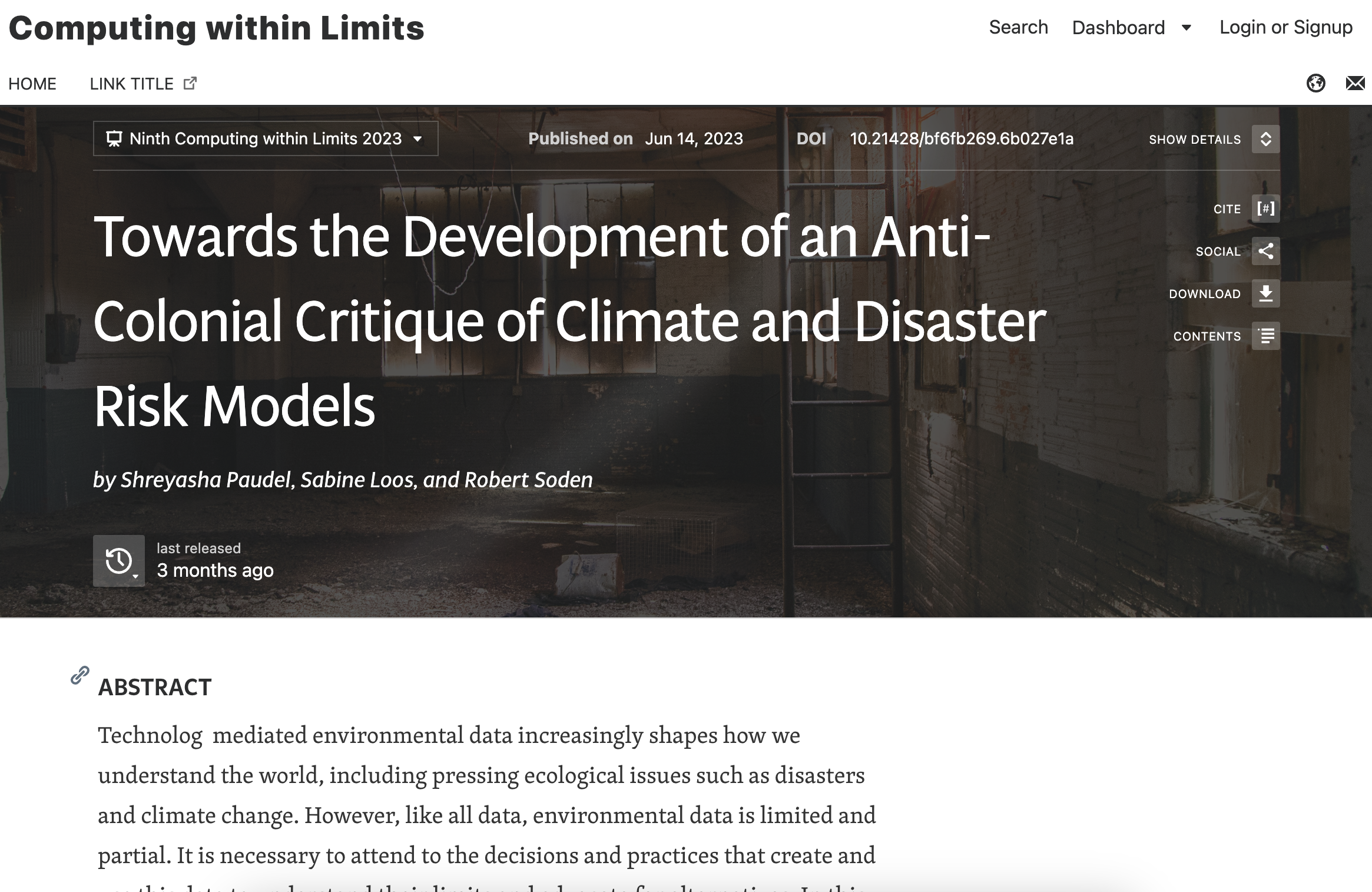
Towards the Development of an Anti-Colonial Critique of Climate and Disaster Risk Models
This poster, which won 1st place for Theoretical and Social Sciences, provides an overview of user engagement to design more actionable earthquake information products at the USGS.
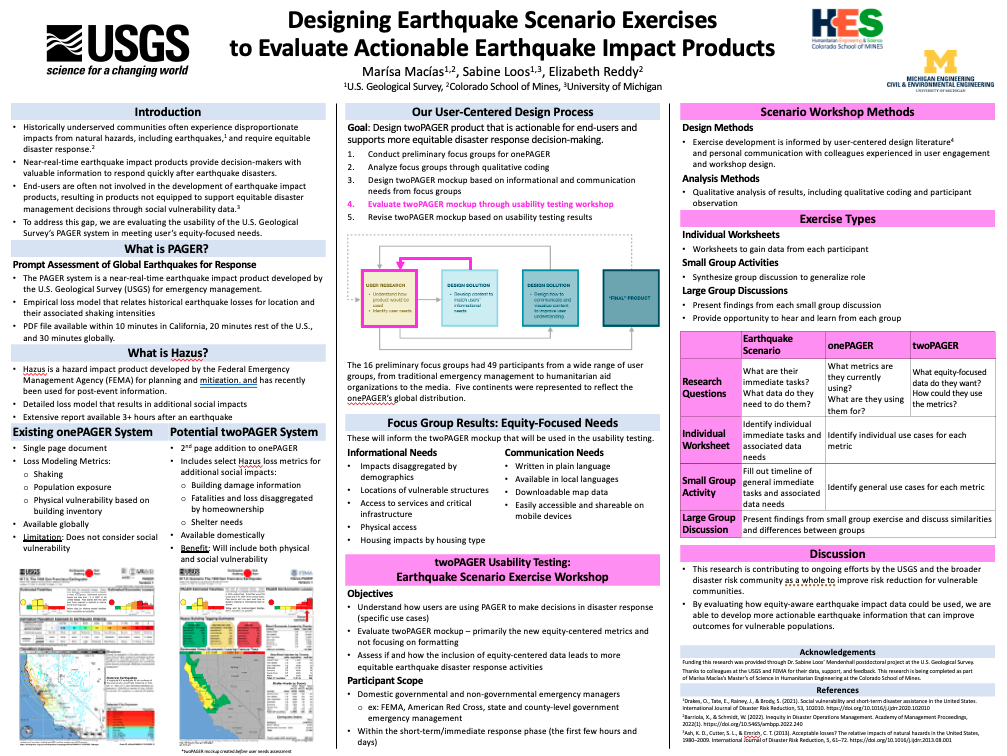
Designing Earthquake Scenario Exercises to Evaluate Actionable Earthquake Impact Products
An overview of integrating social equity into risk modeling.
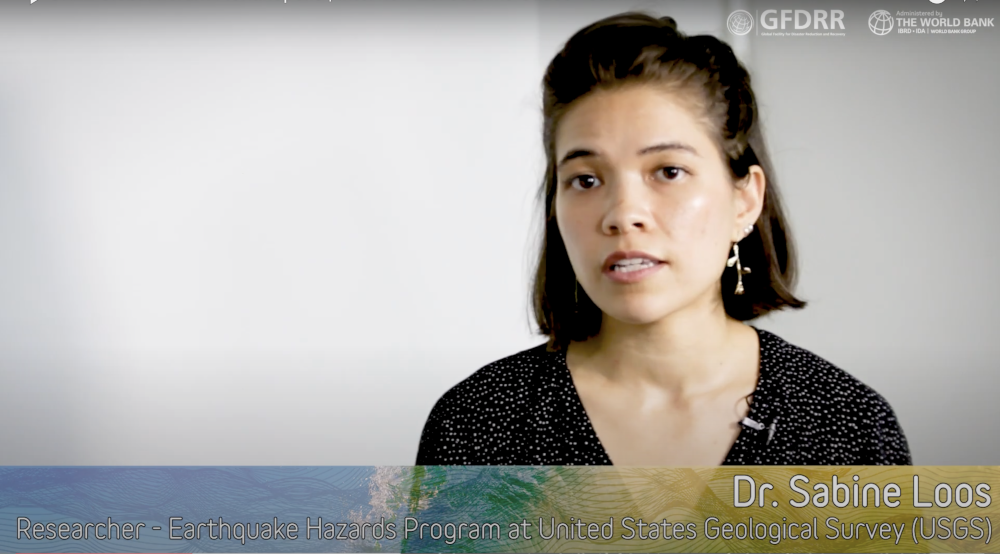
Understanding Risk 2022 -- Interview with Sabine Loos.
In this talk, Sabine presents on three main examples of designing earthquake information to be more actionable by centering user needs and more equitable by prioritizing vulnerable populations.
